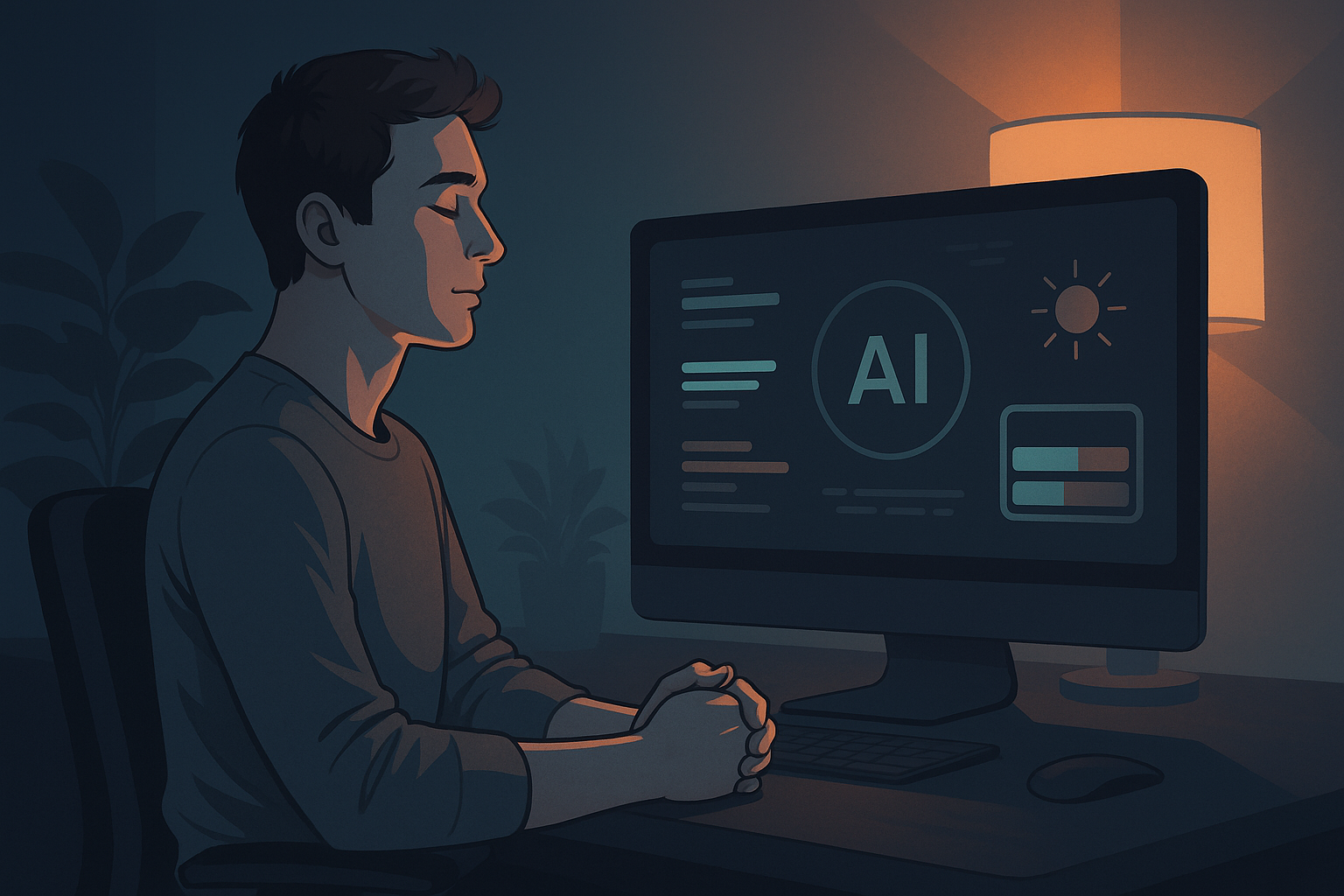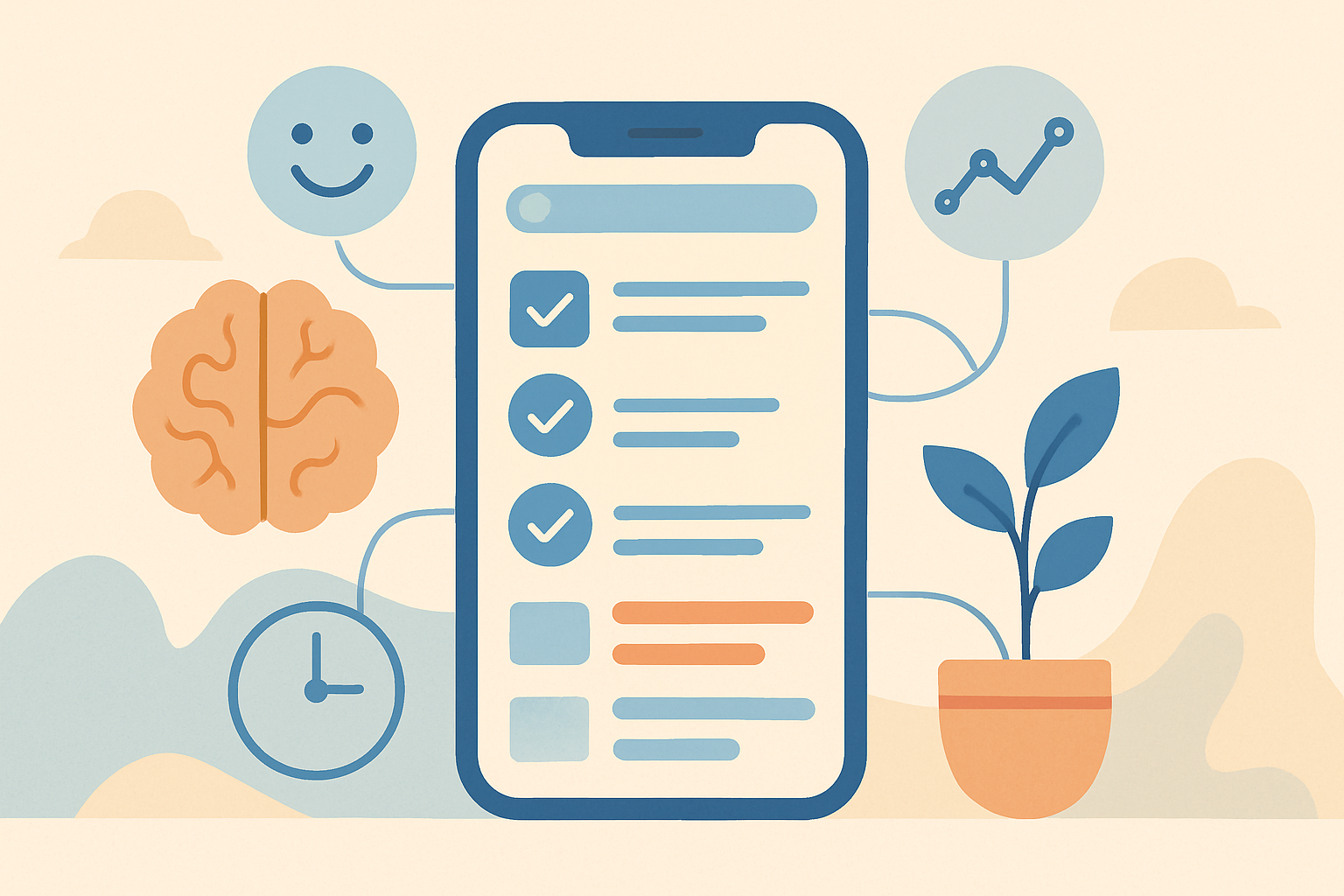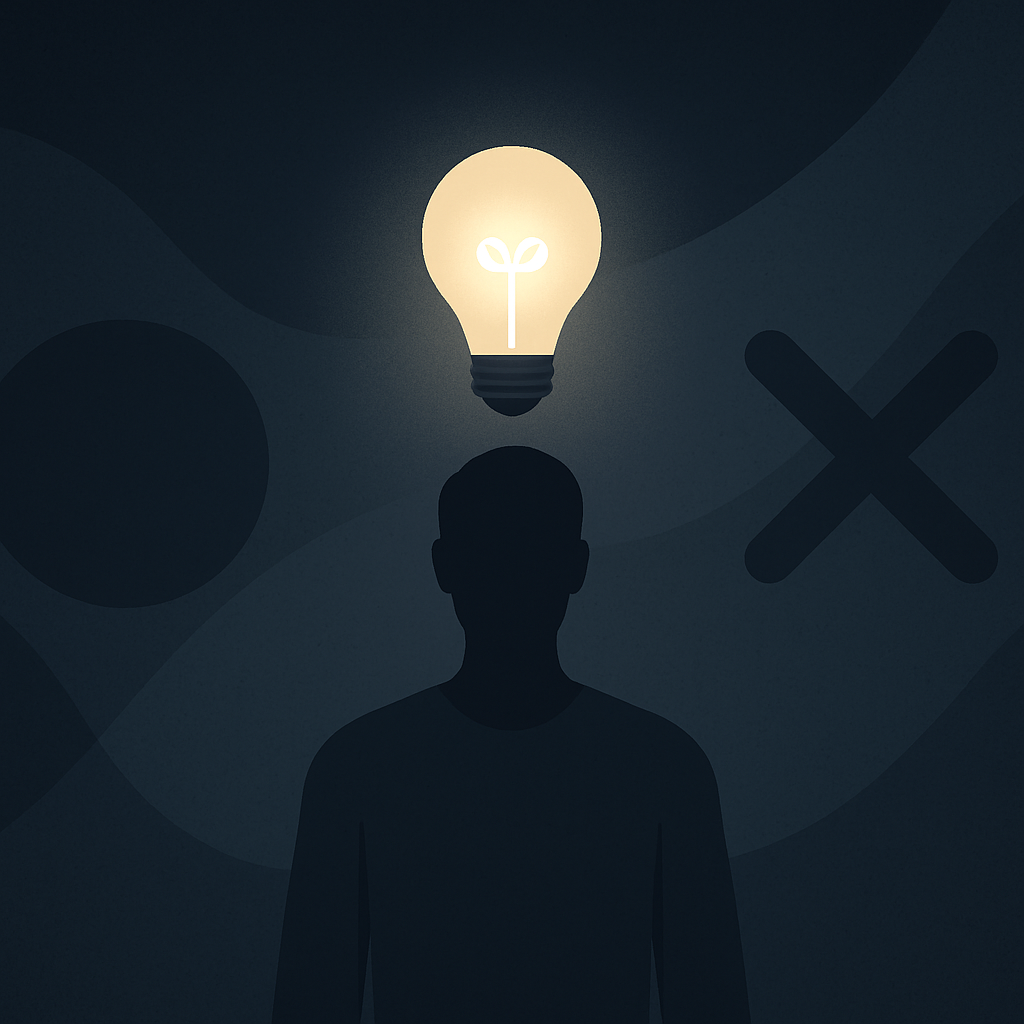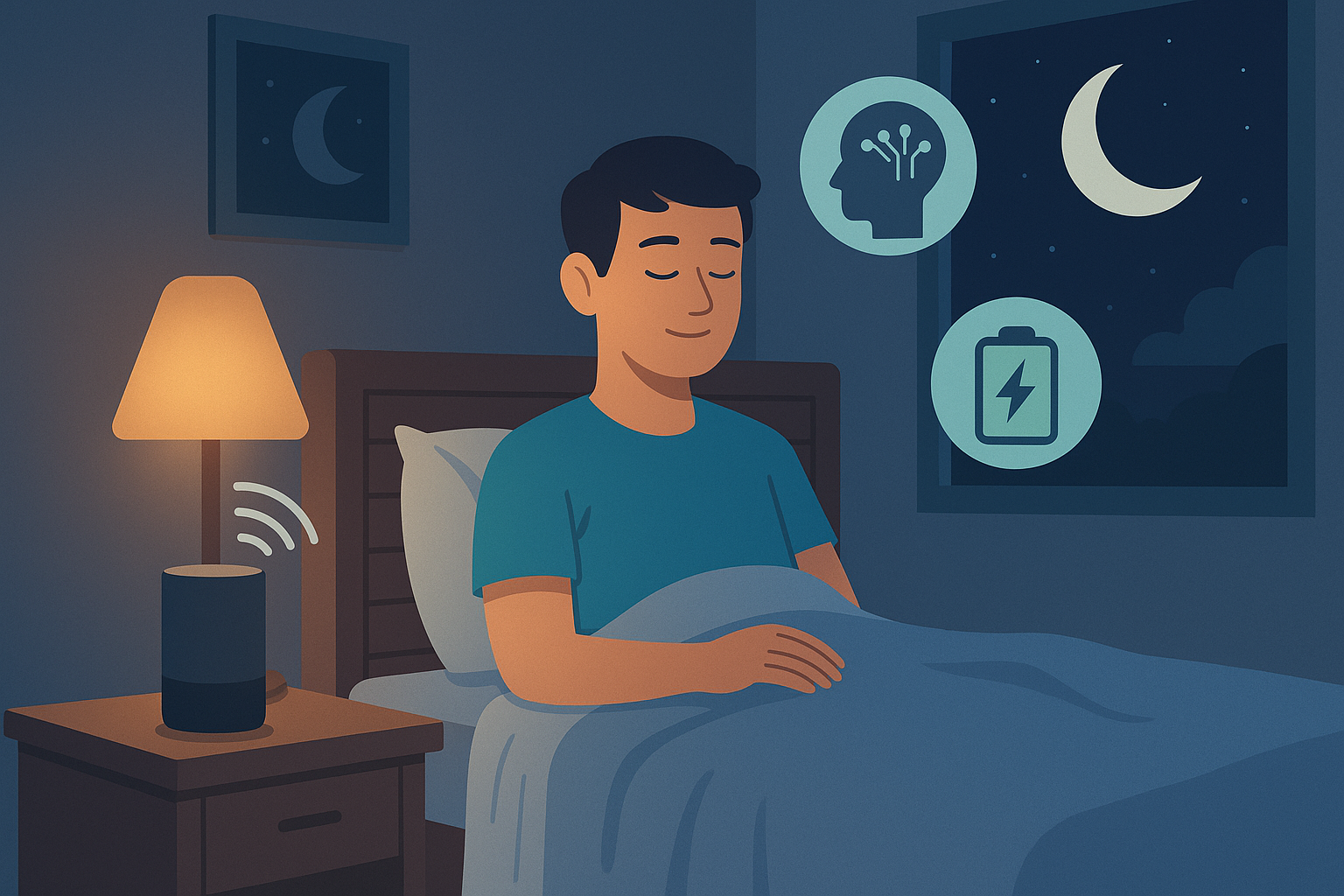Modern work doesn’t just exhaust our bodies — it consumes our attention. Between endless notifications, digital meetings, and fragmented focus, we live in a constant state of cognitive noise. What if the solution wasn’t more productivity, but smarter recovery? AI
That’s the idea behind the 2-Hour Reset, a short, AI-assisted practice designed to realign energy, creativity, and mental clarity in the middle of chaos.
It’s not a vacation. It’s precision recovery — powered by data, designed for humans.

The Modern Problem: Infinite Work, Finite Energy
We live in a world where rest feels like guilt. The traditional idea of work-life balance — strict separation between the two — no longer fits. In the digital era, your workspace is everywhere, and your focus is constantly taxed.
AI technology is now helping to rebuild that boundary — not by enforcing disconnection, but by measuring and restoring attention in smarter ways.
The 2-Hour Reset concept comes from neuroscience: the human brain can sustain deep, high-quality focus for about 90 to 120 minutes before performance begins to decline sharply.
AI helps us detect that point, then guide a structured reset that reboots cognitive performance.
How AI Detects When You Need a Reset
Artificial intelligence thrives on recognizing patterns — including when your brain begins to struggle.
Through data from wearables, typing speed, task completion, or even sentiment analysis, AI systems can identify when mental energy dips and attention starts to drift.
Example:
Motion or Reclaim AI detects you’ve been in meetings for three consecutive hours and haven’t completed any deep-focus tasks. Based on your previous behavior, it automatically schedules a 2-hour recovery window: light tasks, mindfulness prompts, or even a walk guided by an AI coach through your smartwatch.
AI doesn’t wait for burnout. It predicts it.
| Input Data | AI Interpretation | Suggested Reset |
|---|---|---|
| Calendar overload | Fatigue threshold | Light physical movement |
| Reduced typing accuracy | Cognitive decline | Short creative rest |
| Slower response times | Attention drift | Guided breathing block |
| Elevated heart rate | Stress | Meditation or nature break |
The result is a smarter rhythm — alternating between high performance and intentional rest.
The AI Science Behind the 2-Hour Reset
Cognitive performance follows an ultradian rhythm — 90-120-minute cycles of peak energy followed by dips.
In traditional settings, people push through those dips, relying on caffeine or multitasking to stay productive. AI turns this science into action, identifying those natural lows and creating personalized recovery patterns.
Instead of forcing productivity, it restores it.
Example:
After 100 minutes of deep work, AI pauses your notifications, adjusts your lighting via smart home integration, and recommends a low-effort physical task. During this 20-minute reset, brainwave activity rebalances — preparing you for another productive cycle.
This isn’t a break. It’s strategic recovery.
What a 2-Hour Reset Looks Like
The reset is different for everyone, but the goal is always the same: recover without disconnecting from purpose.
Here’s what a day might look like for a digital professional using an AI-driven recovery model:
- Morning: Deep work guided by smart time blocking (90-120 minutes).
- Midday: AI detects performance drop and schedules a 2-hour reset window.
- First 30 minutes: Light movement or walking meeting prompted by a wearable.
- Next 30 minutes: ChatGPT generates reflective journaling prompts in Notion.
- Final hour: Reclaim AI pre-plans the next work block while smart lighting transitions to warmer tones.
After two hours, focus returns sharper, stress lower, and decision-making faster.
The AI Tools That Make It Work
The 2-Hour Reset is not a single app — it’s an ecosystem.
These platforms connect physiological awareness with scheduling automation:
| Tool | Function | Ideal For |
|---|---|---|
| Reclaim AI | Dynamic scheduling | Corporate professionals |
| Motion | Predictive task management | Entrepreneurs |
| Oura / Whoop | Recovery and readiness tracking | Active workers |
| Notion AI | Reflection and journaling | Creative thinkers |
| ChatGPT | Mental reset prompts | Strategy & insight |
Each plays a role in closing the gap between work and recovery — making balance a measurable process, not a wish.
Example: AI as a Personal Recovery Coach
Imagine a world where your assistant isn’t just scheduling meetings but managing your mental load.
You start to lose focus at 3:00 PM. AI recognizes this through reduced interaction speed and recent sleep data. Instantly, your system shifts your schedule, postponing heavy tasks and replacing them with a recovery protocol: a 20-minute stretch routine, 10-minute meditation, and a 30-minute creative block.
By 5:00 PM, you’ve regained clarity and momentum — without guilt or burnout.
AI doesn’t just measure your time. It protects your energy.
The Emotional Side of Balance
Work-life balance has always been a human problem — emotional, not logistical.
AI introduces objectivity where emotion once ruled. Instead of waiting to feel “tired,” it quantifies fatigue. Instead of guessing when to rest, it measures it.
This removes the guilt from recovery — because now, it’s part of the system.
The 2-Hour Reset doesn’t tell you to work less; it helps you work sustainably. It transforms rest into performance fuel.
The Future of AI and Well-Being
In the coming years, we’ll see AI systems designed not just for productivity but for emotional resilience.
Your calendar will sync with biometric data. Lighting, sound, and environment will adapt in real time to your cognitive state.
The AI-driven workspace of the future won’t just optimize time — it’ll optimize humanity.
The 2-Hour Reset is the first step toward that future: a bridge between logic and emotion, between structure and rest.
Conclusion
True balance isn’t about escaping work. It’s about designing it intelligently.
The 2-Hour Reset is a conversation between your mind and the machines that now understand it — a reminder that recovery is not weakness, but wisdom.
AI helps you find that balance — quietly, precisely, and consistently.
Because when rest becomes data-driven, balance becomes achievable.
Further Reading & Related Insights
Internal link:
- Smart Time Blocking: Let AI Plan Your Day — Learn how adaptive time systems create focus through intelligent scheduling.
External links:
Blog
This section provides an overview of the blog, showcasing a variety of articles, insights, and resources to inform and inspire readers.
-

AI Habit Tracking and the New Rhythm of Modern Self-Improvement
AI Habit Tracking. Progress used to depend on discipline. Now, it depends on data.…
-

AI Decision Making and the New Discipline of Intentional Living
AI Decision Making. Every “yes” has a cost. Every time you agree to something…
-

The Perfect AI Night Routine to Sleep Better and Think Smarter
AI Night Routine. Your morning doesn’t begin when you wake up — it begins…
